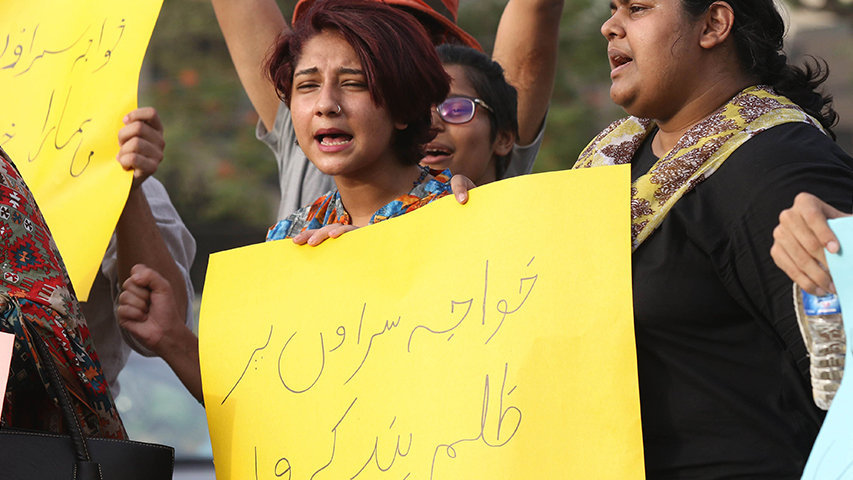
Pakistan Stands Up for Transgender Rights
by Yash Saboo May 22 2018, 5:30 pm Estimated Reading Time: 2 mins, 29 secsTransgenders are a diverse community, representing all racial and ethnic backgrounds, as well as faith backgrounds. They come from all walks of life. They are dads and moms, brothers and sisters, sons and daughters. They are your coworkers and your neighbors. They are 6-year-old children and 60-year-old grandparents.
Laws affecting lesbian, gay, bisexual and transgender (LGBT) people vary greatly by country or territory. Pakistan made history by passing a Bill in the parliament last week guaranteeing the basic rights for transgender citizens and outlawing discrimination.

Source : New Europe
Titled The Transgender Persons (Protection of Rights) Act, the recently passed legislation allows Pakistanis to self-identify their gender and have that gender recognized on official paperwork like driver’s licenses, passports and national IDs. If signed into law, the bill would also prohibit discrimination against transgender people at work and during the hiring process, in medical situations and on public transportation. In addition to this, the government must also establish what the legislation calls “Protection Centers and Safe Houses” for the transgender community as well as create separate prisons and jails for transgender people.
“This kind of development is not only unprecedented in Pakistani history, but it’s one of the most progressive laws in the whole world,” activist Mehlab Jameel, who helped write the bill, told NPR after its passage on May 9. President Mamnoon Hussain must now sign the bill into law for it to take effect.
“Transgender people constitute one of the most marginalized communities in the country and they face problems ranging from social exclusion to discrimination, lack of education facilities, unemployment, lack of medical facilities and so on,” a key passage of the bill reads. Because of discrimination and a lack of steady employment opportunities, many transgender Pakistanis currently turn to begging or sex work to earn the money they need to survive.
In India, as of 2018, the Supreme Court is set to reconsider whether to legalize same-sex sexual activity and a draft Uniform Civil Code, if approved in its current form, would legalize same-sex marriage in India.
Coming back to Pakistan, the real challenge is not the passing of the bill but transgender people getting acceptance in the society.
A 2017 New York Times article about transgender rights in Pakistan noted that while the country is making legislative and legal process when it comes to transgender rights, the day-to-day lives of members of the community are still deeply affected by widespread discrimination, violence and minimal job prospects. Jameel noted at the time that while the bill should rightly be praised for its affirmation of transgender rights, its passage was the first step of what will be a long process when it comes to cultural attitudes.
“So, after this bill passes, what the government really needs to do is start a campaign to sensitize the masses, government officials, policemen, everyone”, she told the Times last summer. “That’s the real challenge.”





-173X130.jpg)




-173X130.jpg)
-173X130.jpg)